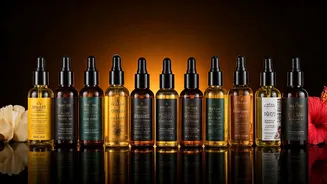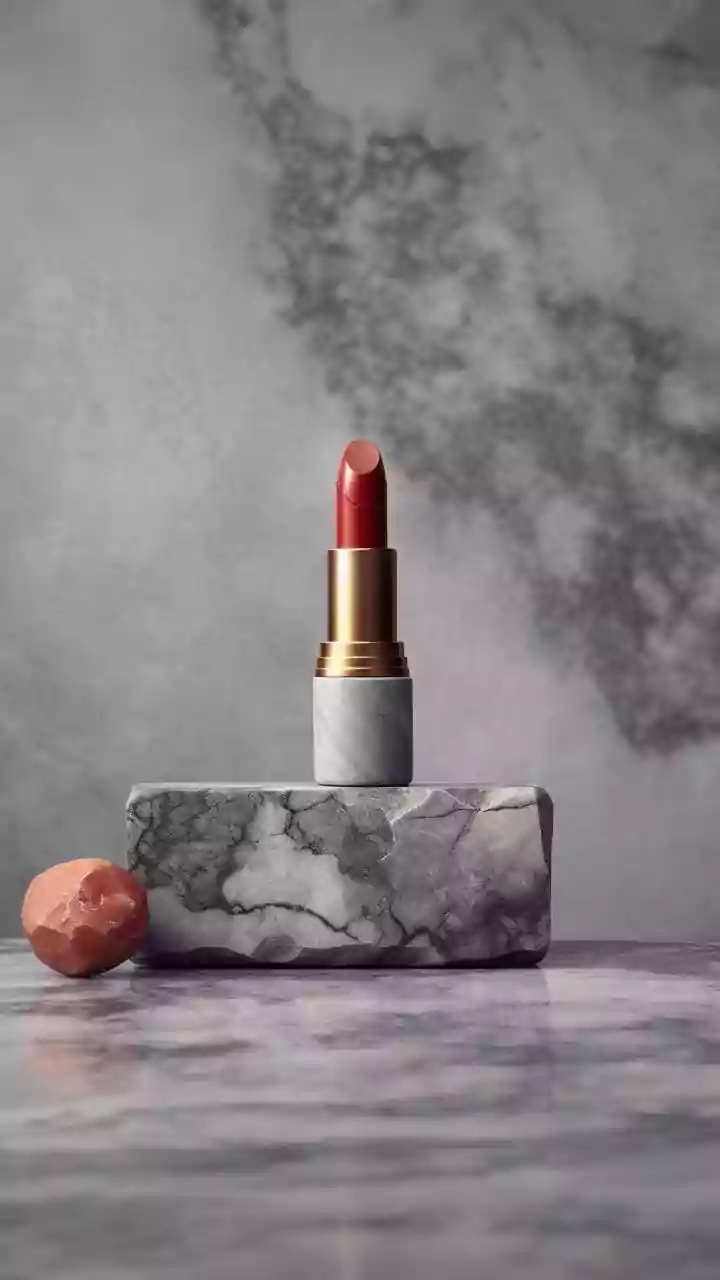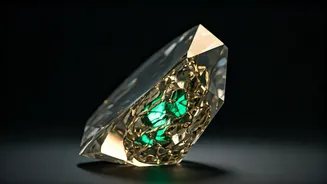Argan Oil's Magic
Argan oil, often lauded as 'liquid gold,' is a powerhouse for dry and damaged hair. Originating from Morocco, it’s rich in fatty acids and vitamin E, providing
intense hydration and reducing breakage. The oil penetrates the hair shaft, improving elasticity and promoting shine. It's particularly effective for taming frizz and split ends, making hair more manageable. When applying, use a small amount, focusing on the ends, as excessive use can make the hair look greasy. Argan oil is great for daily use, or you can use it as a deep conditioning treatment overnight for more intensive repair. Its lightweight formula makes it suitable for various hair types, but it's especially beneficial for those with coarse, dry hair. Regular use of argan oil can result in stronger, smoother, and healthier-looking hair.
Coconut Oil Power
Coconut oil is a versatile remedy, loved for its ability to penetrate the hair shaft and provide deep conditioning. This oil is made of medium-chain fatty acids that help to reduce protein loss, which is a major factor in hair damage. Its molecular structure allows it to effectively moisturize and strengthen the hair from within. Coconut oil is particularly effective for those with chemically treated or heat-damaged hair. Apply coconut oil before washing to protect hair from shampoo’s drying effects, or use it as a leave-in conditioner. It can help reduce frizz, add shine, and prevent breakage. Moreover, coconut oil may also stimulate hair growth due to its ability to deeply moisturize the scalp and reduce dandruff. For optimal results, use it regularly as part of your hair care routine.
Jojoba Oil Benefits
Jojoba oil is unique because its composition closely resembles the natural sebum produced by the scalp, making it an excellent moisturizer. This oil is rapidly absorbed, providing hydration without leaving a greasy residue. It’s perfect for all hair types but is especially beneficial for those with oily or fine hair, as it adds moisture without weighing the hair down. Jojoba oil also helps to balance oil production, preventing an overly oily scalp. This oil is rich in vitamins and minerals that nourish the hair follicles, encouraging healthier growth and reducing hair fall. Use it to treat a dry scalp, reduce dandruff, and improve shine. A few drops are typically sufficient to massage into the scalp or apply to the lengths of the hair. With consistent use, jojoba oil can contribute to stronger, more resilient hair.
Olive Oil's Richness
Olive oil is a classic hair treatment, rich in antioxidants and essential fatty acids that nourish and strengthen hair. This oil penetrates the hair shaft to moisturize, reducing dryness and breakage. Regular use can improve the elasticity of your hair, making it less prone to damage. It's particularly beneficial for individuals with thick, coarse hair, as it provides intense hydration and softens the hair strands. Olive oil also helps to protect hair from environmental stressors like sun and pollution. For a deep conditioning treatment, apply warm olive oil to your hair, cover it with a shower cap, and let it sit for at least 30 minutes before shampooing. While it can be a little heavier than other oils, its moisturizing qualities make it a valuable addition to your hair care regimen for damaged and dry hair.
Almond Oil's Sweetness
Almond oil is a light yet effective oil that provides hydration and shine. It's rich in vitamin E, which is an antioxidant that protects hair from damage. The oil has the ability to penetrate the hair shaft, reducing breakage and split ends. It also improves the hair's overall texture and manageability. Almond oil is gentle and suitable for most hair types, including those with sensitive scalps. It helps reduce inflammation and soothe irritated skin. It can be used as a leave-in conditioner or added to your regular shampoo and conditioner for extra moisture. Regular use helps to strengthen and soften the hair, leaving it looking healthier and more vibrant. Apply a small amount to damp hair to seal in moisture and protect it from environmental damage.
Castor Oil's Boost
Castor oil is well-known for its ability to promote hair growth due to its ricinoleic acid content. It is a thick oil that deeply moisturizes the scalp, reducing dryness and dandruff, which helps in creating a healthy environment for hair growth. Castor oil also strengthens hair, minimizing breakage, and split ends. While it's particularly effective for those looking to stimulate hair growth, it can benefit all hair types, especially dry and damaged hair. Due to its thickness, it's best to mix castor oil with a lighter oil, such as argan or almond oil, before application. Massage it into the scalp or apply it to the hair ends. This helps to make the application easier and more effective. For best results, use it weekly and ensure that you wash it thoroughly to prevent build-up.
Avocado Oil's Power
Avocado oil is rich in vitamins, minerals, and fatty acids that intensely nourish and moisturize the hair. This oil penetrates deeply, repairing damage and hydrating the hair shaft, making it ideal for dry and brittle hair. It also helps to protect the hair from environmental damage and reduces breakage. The oil is particularly effective for those with coarse or thick hair that requires extra moisture. It is a great source of oleic acid, which helps to penetrate the hair shaft. You can use avocado oil as a pre-shampoo treatment, applying it to your hair and letting it sit for at least 30 minutes before washing, or use it as a leave-in conditioner. It can improve hair elasticity, add shine, and make it more manageable. Regular use of avocado oil can restore the hair’s health.
Grape Seed Oil's Lightness
Grape seed oil is lightweight and non-greasy, making it perfect for those with fine or oily hair who still need moisture. It is rich in antioxidants, which protect the hair from damage caused by environmental factors. Grape seed oil is easily absorbed and can help to condition the hair, adding shine and reducing frizz. It's effective at sealing in moisture, preventing dryness and split ends. You can apply grape seed oil to damp hair after washing, or use it as a pre-styling treatment to protect against heat damage. Regular use can result in smoother, more manageable hair without weighing it down. This oil is especially useful for those seeking a light yet effective moisturizing treatment that won't make the hair feel heavy.
Rosemary Oil for Growth
Rosemary oil is renowned for its potential to stimulate hair growth and improve scalp health. Though often used diluted, it's effective in increasing circulation and strengthening hair follicles. It contains properties that can help reduce hair loss and improve the overall condition of the scalp, which in turn leads to healthier hair growth. Rosemary oil is not only great for hair growth but can also add shine and softness to damaged hair. It is usually mixed with a carrier oil, such as coconut or jojoba oil, before applying it to the scalp. Regular scalp massages with rosemary oil can lead to a noticeable increase in hair density and strength. Consistency is key when using rosemary oil, as it takes time to see significant results.
Tea Tree Oil's Cleansing
Tea tree oil has antibacterial and antifungal properties that make it a great treatment for the scalp. It helps to clear clogged follicles and reduce dandruff, which creates a favorable environment for healthy hair growth. This oil is known for its ability to soothe an itchy scalp and reduce inflammation. Tea tree oil should always be diluted, as it can be irritating when used in its concentrated form. Mix a few drops with a carrier oil before applying it to the scalp. It can also be added to your shampoo to help maintain a healthy scalp and prevent build-up. Regular use of tea tree oil can lead to a cleaner, healthier scalp, ultimately improving the overall condition and appearance of your hair. Its cleansing properties are beneficial for those with oily scalps or conditions like dandruff.




















